Mawulolo K. Ameko
LonelyText: A Short Messaging Based Classification of Loneliness
Jan 22, 2021
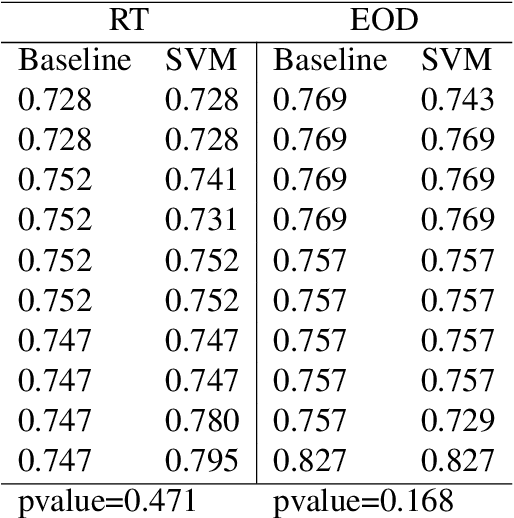

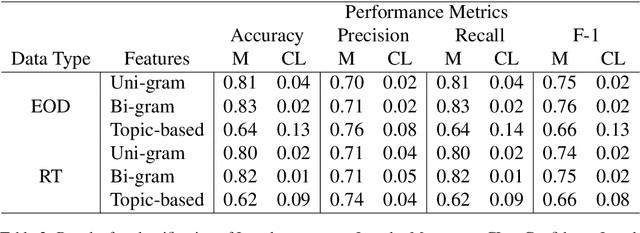
Abstract:Loneliness does not only have emotional implications on a person but also on his/her well-being. The study of loneliness has been challenging and largely inconclusive in findings because of the several factors that might correlate to the phenomenon. We present one approach to predicting this event by discovering patterns of language associated with loneliness. Our results show insights and promising directions for mining text from instant messaging to predict loneliness.
A Framework for Addressing the Risks and Opportunities In AI-Supported Virtual Health Coaches
Oct 12, 2020
Abstract:Virtual coaching has rapidly evolved into a foundational component of modern clinical practice. At a time when healthcare professionals are in short supply and the demand for low-cost treatments is ever-increasing, virtual health coaches (VHCs) offer intervention-on-demand for those limited by finances or geographic access to care. More recently, AI-powered virtual coaches have become a viable complement to human coaches. However, the push for AI-powered coaching systems raises several important issues for researchers, designers, clinicians, and patients. In this paper, we present a novel framework to guide the design and development of virtual coaching systems. This framework augments a traditional data science pipeline with four key guiding goals: reliability, fairness, engagement, and ethics.
Offline Contextual Multi-armed Bandits for Mobile Health Interventions: A Case Study on Emotion Regulation
Aug 21, 2020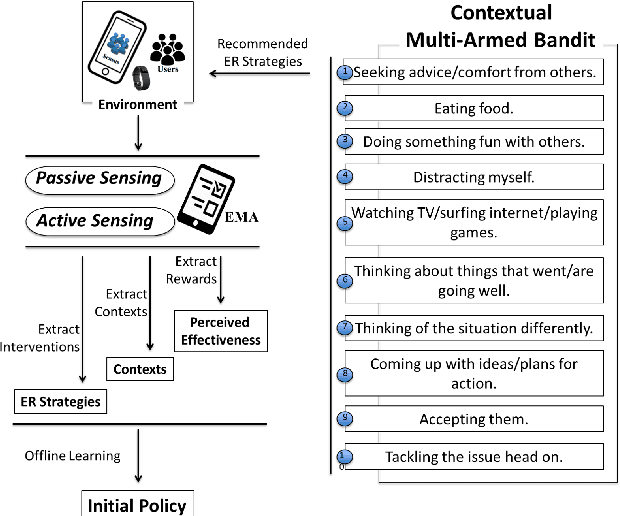
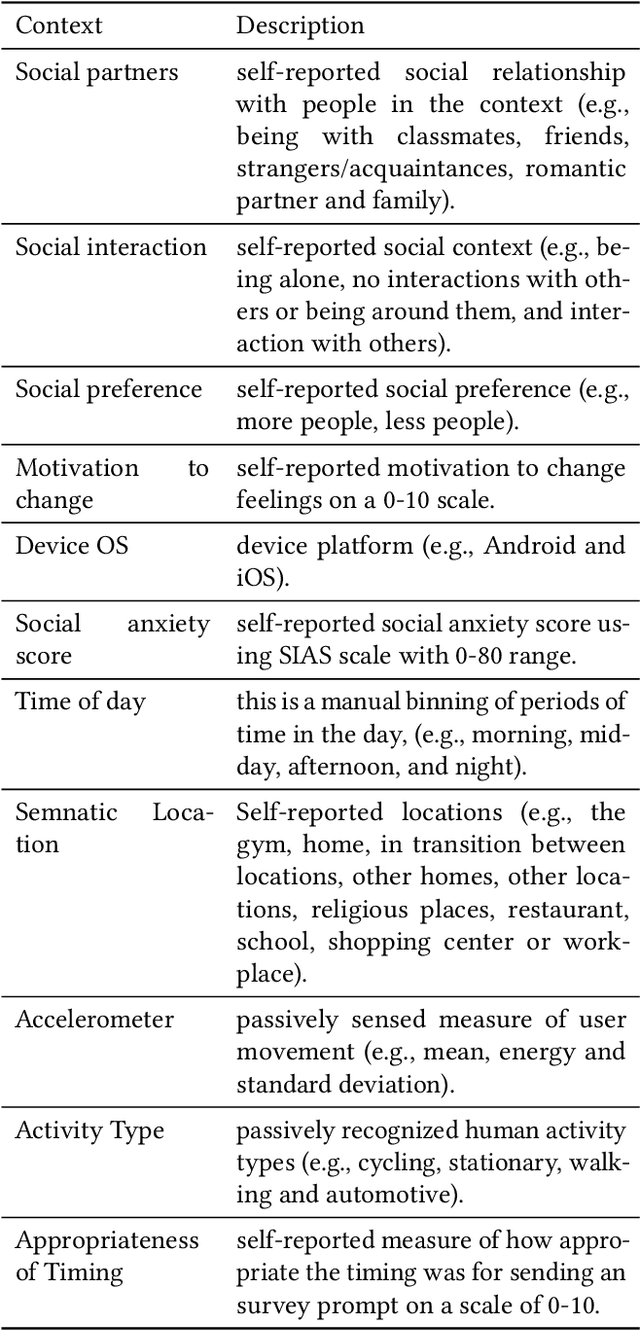

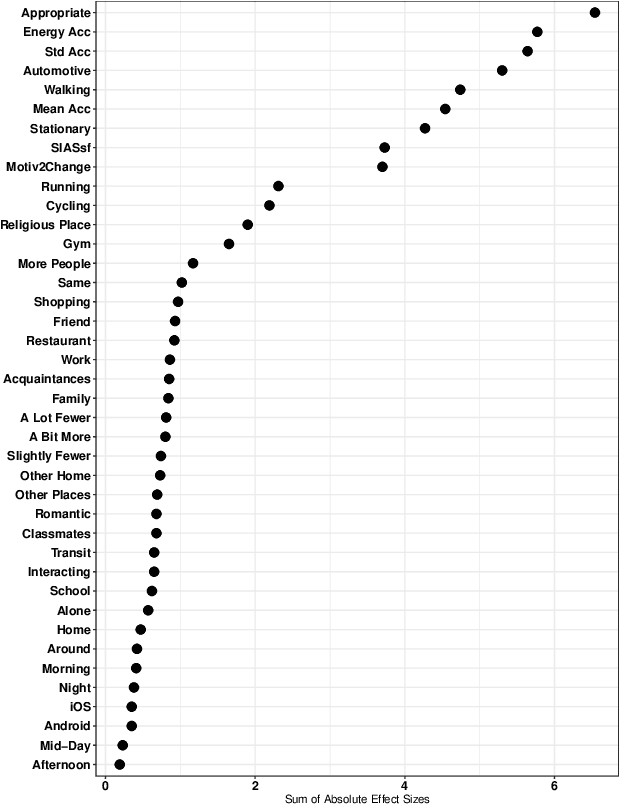
Abstract:Delivering treatment recommendations via pervasive electronic devices such as mobile phones has the potential to be a viable and scalable treatment medium for long-term health behavior management. But active experimentation of treatment options can be time-consuming, expensive and altogether unethical in some cases. There is a growing interest in methodological approaches that allow an experimenter to learn and evaluate the usefulness of a new treatment strategy before deployment. We present the first development of a treatment recommender system for emotion regulation using real-world historical mobile digital data from n = 114 high socially anxious participants to test the usefulness of new emotion regulation strategies. We explore a number of offline contextual bandits estimators for learning and propose a general framework for learning algorithms. Our experimentation shows that the proposed doubly robust offline learning algorithms performed significantly better than baseline approaches, suggesting that this type of recommender algorithm could improve emotion regulation. Given that emotion regulation is impaired across many mental illnesses and such a recommender algorithm could be scaled up easily, this approach holds potential to increase access to treatment for many people. We also share some insights that allow us to translate contextual bandit models to this complex real-world data, including which contextual features appear to be most important for predicting emotion regulation strategy effectiveness.
Cluster-based Approach to Improve Affect Recognition from Passively Sensed Data
Jan 31, 2018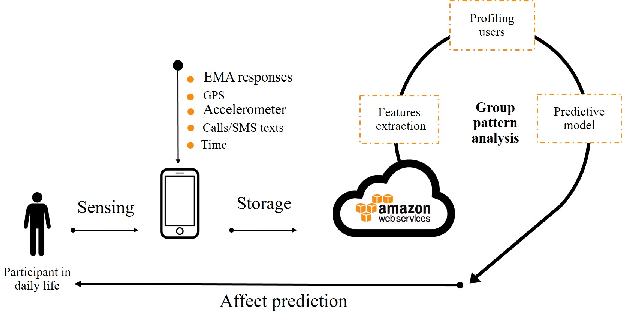
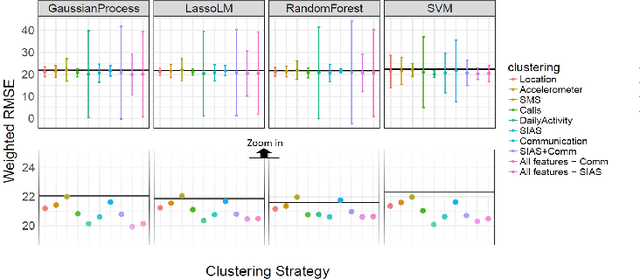
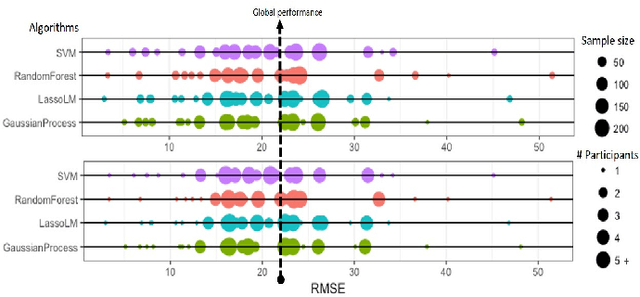
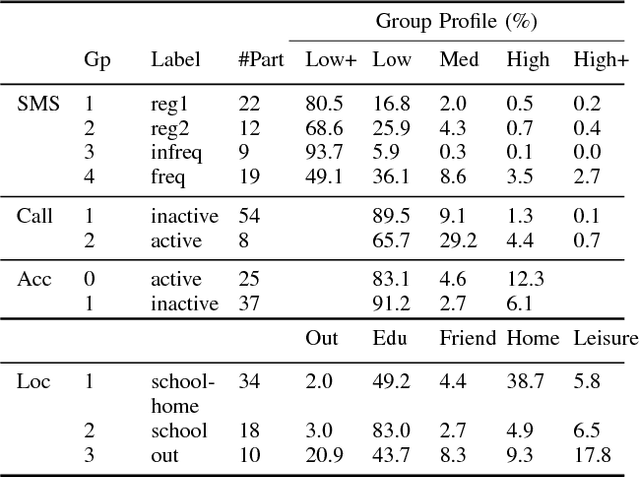
Abstract:Negative affect is a proxy for mental health in adults. By being able to predict participants' negative affect states unobtrusively, researchers and clinicians will be better positioned to deliver targeted, just-in-time mental health interventions via mobile applications. This work attempts to personalize the passive recognition of negative affect states via group-based modeling of user behavior patterns captured from mobility, communication, and activity patterns. Results show that group models outperform generalized models in a dataset based on two weeks of users' daily lives.
 Add to Chrome
Add to Chrome Add to Firefox
Add to Firefox Add to Edge
Add to Edge